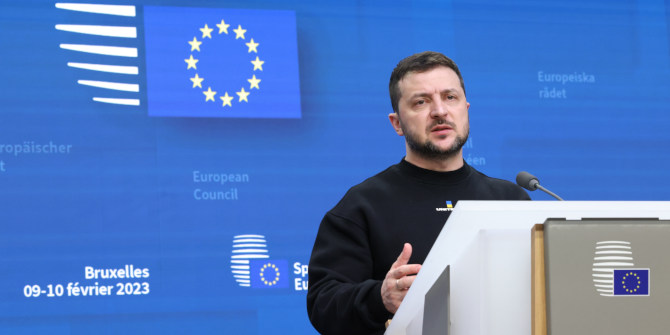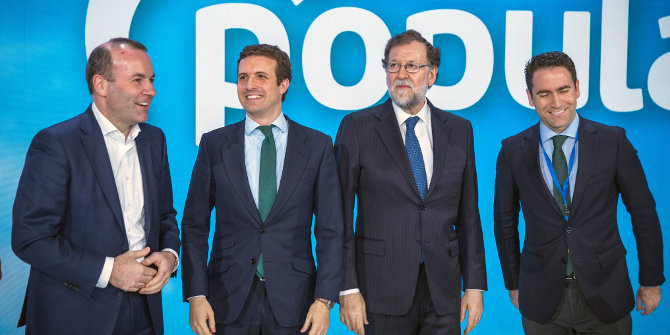There are profound moral implications associated with climate change. Sergio Scandizzo argues that the absence of a common moral framework in modern society helps explain our inability to reduce emissions.
The introductory chapter of After Virtue, Alasdair MacIntyre’s critical analysis of modern moral philosophy, always reminded me of Walter Miller Jr.’s science fiction masterpiece A Canticle for Leibowitz. In the latter, we are presented with a post-nuclear war landscape where the protagonist, Brother Francis Gerard, stumbles upon a cache of old documents that he and his fellow monks can only half-understand.
In After Virtue, we are asked to consider a world where science has catastrophically broken down and people try to put it back together from the surviving fragments. As in Miller’s novel, the result is only superficially like science because the conceptual framework as well as the key attitudes and assumptions are irretrievably lost. MacIntyre argues that this is in fact the current state of morality, as its basic institutions have similarly been dismantled and what we have is but a simulacrum of morality.
A lost moral framework
After Virtue goes on to perform a radical critique of modern moral philosophy from the Enlightenment all the way to Nietzsche and Marx, but what I find truly compelling is the first chapter and its metaphor of loss and chaos where men try to reconstruct a moral compass without any idea of the true North, much like the monks devoted to Saint Leibowitz in Miller’s novel. It is difficult not to remark on the fact that, in our hyper-technological age, the public is so swift in setting aside questions of science as something “for the experts to decide” while being ready to take strong and even radical positions on all manners of ethical issues, from human rights to abortion, euthanasia and children’s education.
The COVID-19 pandemic provided a striking example of a debate where scientists were granted unquestioned authority on diagnosis, prognosis and treatment, while every policy decision, from implementing lockdown to launching a vaccination campaign, was forcefully questioned on grounds of morality, civil liberties and rights to self-determination. One could have expected to see a lot more prudence on these issues as, after all, science can be no sure guide as to what is right when it comes to questions of freedom, individual rights, constraints or even coercion. And yet it was precisely on those issues that opinions were most strong and unyielding, perhaps to compensate for the lack of a moral framework that according to MacIntyre we have long since lost.
A specular phenomenon can be observed in modern European politics where the traditional ideological structure that used to frame political parties’ positions on virtually all key issues has progressively faded away. In many EU countries it is now hard to distinguish not so much between parties’ electoral promises, but between actual policy choices once one or more of them are in power. The limited – in some cases very limited – room for financial manoeuvre makes fiscal policies of the right and the left differ only at the margins, while the combination of EU and NATO membership reduces any foreign policy distinction to a subject for internal debates rather than of any international consequence.
The same largely holds for industrial and foreign trade policy, which largely rely on the pooling of budgetary resources and negotiations, both within and outside the EU, in Brussels. It is perhaps for this reason that, while carrying out roughly the same policies on almost all key issues, European parties tend to differ strikingly, and sometimes vociferously, on issues of morality.
Parties on the right of the political spectrum argue for limiting abortion rights for women, asylum rights for migrants and resisting the recognition of LGBT rights, while parties from the left present themselves as minority champions, defenders of migrants and the sole guardians of women’s rights.
What is striking is not the differences per se, but how those differences are magnified, and in many cases exaggerated, to compensate for the loss of identity brought about by larger geopolitical forces. It is because those issues are moral in nature that they lend themselves so easily to radicalisation, as the lack of a shared moral framework makes it possible to take extreme positions without the need for an honest discussion let alone a systematic analysis.
Sustainability
However, nothing in contemporary discourse compares, for immediacy, scale and moral implications, to the issue of our responsibility towards our planet and future generations, and specifically to our, so far failed, commitment to reduce carbon emissions to avert an ecological catastrophe.
This responsibility is the central issue in today’s discourse on sustainability, where an ethical narrative is developed around virtually all human activities, but with a special focus on production, consumption, energy efficiency and the emissions of greenhouse gases. The concept of sustainability, in essence a byword for the totality of our public goals in economic, social and environmental terms, pervades both the public debate and financial-industrial policymaking. It is evoked in coffee table discussions as much as in parliamentary arguments, and, most importantly, it has become a yardstick (or maybe a crutch) for holding the moral high ground.
And yet, the same lack of a common moral framework lamented by MacIntyre accounts for our failure to uphold such a moral narrative of sustainability in both the public and the business sphere. While consulting companies assign environmental, social and governance (ESG) ratings and labels in an incoherent and often contradictory fashion, governments around the world have so far failed to live up to the many commitments they have made since the famous Paris Agreement.
Moreover, it is becoming clear that western public support for certain policies, be they about fostering emission-reducing consumer habits or banning products with a socially questionable supply chain, starts to fade the moment its consequences on our standards of living become clear. The recent case of Germany’s law on the replacement of traditional gas heating systems with heat pumps is a perhaps minor but telling episode. The largely unchallenged reopening of coal power plants in the wake of Russia’s invasion of Ukraine is another.
The limits of paying
More generally, in the European Union we have fallen into a sort of ethical trap whereby we pretend to be able to pay our way out of any predicament. This is apparent from our stances on many key issues: on the war in Ukraine, where we are essentially paying for Ukrainians to fight on our behalf; on the foreseen enlargement of the EU, where in order to include Ukraine, alongside Albania, Serbia, Moldova, North Macedonia and possibly Turkey, we seem to think that all that is needed is an increased budget; and most of all, it is evident in the inconsequential commitments on emissions reduction and in particular in how those commitments fail to factor in the development needs of Africa.
The reality is that it is probably never going to be enough to reduce our emissions and in parallel finance Africa’s transition. We may also have to reduce our emissions enough for Africa to continue to burn fossil fuels (and possibly increase their emissions) until African countries reach a stage of development where they can finally engage in adequate energy policies. Unfortunately, sometimes paying is not enough to solve problems, not only because money always runs out eventually but also because in an interconnected world no problem can be solved in isolation.
Perhaps the problem of emissions reduction belongs to the class of problems that have “no technical solution”, as discussed by Garrett Hardin in his famous paper on the “Tragedy of the Commons”. These are problems which cannot be solved without “changes in human values or ideas of morality”.
On the one hand, we cannot maximise our growth while at the same time reducing carbon emissions in so far as the former is a positive function of the latter. But we are even less likely to be able to maximise our growth and the growth of Africa while at the same time pretending that Africa can reduce its carbon emissions in line with ours. Even with improving energy efficiency, something has to give. That something is our unshakeable belief that wealth, technology and markets (which are all facets of the same thing) will always manage to guarantee our ability to consume (our metonym for freedom).
Note: This article gives the views of the author, not the position of the European Investment Bank, EUROPP – European Politics and Policy or the London School of Economics. Featured image credit: TR STOK/Shutterstock.com





A consensus on anything from covid to globalization to climate change can only ever be viewed as a good thing if people are permitted to openly and regularly critique it without fear.
Many of what we are regularly told nowadays is ‘a consensus’ is in fact an established, establishment dogma or rubric that surprise surprise happens to support the interests of an existing status quo.
The word ‘consensus’ then has become a cynical euphemism. Something we are told is irrefutable and therefore cannot be questioned.
It has actually become a blunt instrument designed to either nudge or force people into accepting a position whether they like it or not and even if it goes against their own perceived self-interests.
If morality has anything to do with this at all it’s that the word ‘consensus’ has actually been instinctively co-opted by those of a more authoritarian bent to do their bidding.
In short, it has become a vital tool of the tyrannous masquerading as the will of a majority.
Thanks Sergio! I foun your summary deep and most interesting
A minor point but you are right about the inspiration from ‘Canticle for Liebowitz’. MacIntyre has expressed surprise that more people didn’t recognise this.